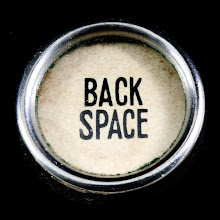I grew up in a family who took the idea of "one day at a time" and turned it into a fine art, so it's always been difficult for me to look too far into the future. It's strange, then, that Dr. Schultz's article "To a Temporary Place in Time..." was the one article out of our discovery resources that caught my attention. Or, more accurately, my imagination.
Web 2.0. Library 2.0. These things aren't our future. These things are our present. Our patrons are already blogging, social networking, YouTubing, playing with pictures and Wikis, tagging and collaborating. Participating. Active. To reach them and keep them, we're going to have to learn this. We're going to have to be out there, participating with them.
Library 2.0 may be the newest way to provide services to our patrons, but it's also a fantastic way to communicate with them. We circulation clerks get to meet, greet, and serve everyone who comes into the building. What an opportunity to use our skills and personal knowledge bases! Unfortunately, we're limited by the building. We ONLY get to meet, greet, and serve the folks who come into the building. Using library 2.0 tools and philosophies, we can reach a wider range of people. We can use our skills, the same ones we use at the desk, to serve cardholders who only occasionally visit, who can't always attend programming when we can offer it (Story time video feeds! Online book discussion groups!), and to introduce non-users to our services and staff, and entice them to utilize the library. We'd be at the desk, but we'd be free from the desk as well. Out in the community. I see this as essential for a library with a small staff who might not always be able to do this in person.
I think I've wandered away from my original paragraph, but as a 2.0 user who has been frustrated by the limits of her location in relation to how she performs her job, I feel that it's important for us to realize that 2.0 is here, right now. The society we serve is in the midst of it, and if we don't learn how to use these tools, we'll fall behind. If we can't engage members of our community in this way, we'll loose them. That idea saddens me because, if we do lose them, they'll never get to experience the post-2.0 possibilites that Dr. Schultz outlined in her essay. The 3D library. Librarians as user evaluated content providers. The library as an information spa - an elegant respite for the patrons in which they can escape the daily grind and relax. These are exciting possibilities! But for us to get there, we have to take the 2.0 step. Even if we have to do it one day at a time.
Subscribe to:
Post Comments (Atom)

1 comment:
Post a Comment